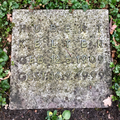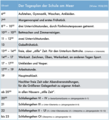Category:Schule am Meer
Jump to navigation
Jump to search
Deutsch: Das ehemalige reformpädagogische Landerziehungsheim Schule am Meer im Loog auf der Nordseeinsel Juist in Ostfriesland in Preußen bestand vom 1. Mai 1925 bis Ende März 1934 und wurde durch den Reformpädagogen Martin Luserke (1880–1968) geleitet. Das Internat zeichnete sich durch ein pädagogisches Gleichgewicht zwischen wissenschaftlichen, sportlichen und musischen Fächern aus. Mitten in der Weltwirtschaftskrise errichtete es 1930/31 nach Plänen des Berliner Architekten Bruno Ahrends (1878–1948) die reichsweit einzige freistehende Theaterhalle einer Schule, führte deutsch-, englisch- und französischsprachige Stücke auf, unterhielt ein von dem Konzertpianisten, Komponisten und Dirigenten Eduard Zuckmayer (1890–1972) geleitetes Schulorchester und einen Schulchor und trat auf Profibühnen in Großstädten auf. Die Schule am Meer wurde vor dem Hintergrund der NS-Gleichschaltung und des Antisemitismus geschlossen.
English: The former progressive boarding school Schule am Meer (School by the Sea) on Juist Island in East Frisia in Prussia existed from 1st May, 1925 to the end of March 1934 and was directed by the educator, bard, writer and theatre maker Martin Luserke (1880–1968). The school was characterized by an educational balance between scientific, athletic and arts subjects. In the midst of the Great Depression, the Berlin-based architect Bruno Ahrends (1878–1948) planned its theater hall, the one and only free-standing of a school in the German Reich. The school performed plays in German, English and French, maintained a school orchestra and a school choir led by pianist and composer Eduard Zuckmayer (1890–1972). Schule am Meer was closed due to Nazi Gleichschaltung (conformity, co-ordination) and anti-Semitism.
Français : L'ancien internat progressive Schule am Meer (École au bord de la mer) sur l'île de Juist, Frise orientale, Prusse, Reich allemand, a existé du 1er mai 1925 à la fin de mars 1934 et a été dirigée par le pédagogue, barde, écrivain et créateur de théâtre Martin Luserke (1880–1968). L'internat était caractérisé par un équilibre pédagogique entre les matières scientifiques, sportives et musicales. Au milieu de la Grande Dépression, l'architecte berlinois Bruno Ahrends (1878–1948) a planifié sa salle de théâtre, la seule et unique d'une école du Reich allemand. L'école a joué des pièces de théâtre en allemand, anglais et français, et a maintenu un orchestre scolaire et une chorale scolaire dirigée par pianiste et compositeur Eduard Zuckmayer (1890–1972). Schule am Meer a été fermé sur fond de conformité nazie et d'antisémitisme.
former progressive boarding school on Juist island, Free State of Prussia, German Reich | |||||
| Upload media | |||||
| Instance of | |||||
|---|---|---|---|---|---|
| Location | Juist, North Sea | ||||
| Has part(s) | |||||
| Inception |
| ||||
| Dissolved, abolished or demolished date |
| ||||
 | |||||
| |||||
Subcategories
This category has the following 23 subcategories, out of 23 total.
A
- Thomas Viktor Adolph (6 F)
- Rudolf Aeschlimann (23 F)
B
- Claude P. Bamberger (9 F)
- Maria Becker (16 F)
F
- Friedrich Könekamp (10 F)
H
- Fritz Hafner (10 F)
- Heinz-Günther Knolle (21 F)
- Hubert Kelter (12 F)
J
- Walter Jockisch (8 F)
K
- Walter Georg Kühne (22 F)
L
- Ludwig Friedel (14 F)
R
- Anni Reiner (20 F)
- Paul Reiner (62 F)
- Jens Rohwer (3 F)
S
- Ulrich Sild (31 F)
T
- Theaterhalle der Schule am Meer (31 F)
U
W
- Grete Weil (11 F)
Z
- Eduard Zuckmayer (24 F)
Media in category "Schule am Meer"
The following 200 files are in this category, out of 279 total.
(previous page) (next page)-
1930 graduates schule am meer juist.png 2,296 × 1,490; 3.11 MB
-
Abel-musgrave ellen 1908-1988.png 1,920 × 2,560; 11.74 MB
-
Aerial view schule am meer juist 1929.png 3,537 × 1,992; 9.25 MB
-
Aeschlimann rudolf juist schule am meer.jpg 1,207 × 1,534; 344 KB
-
Aeschlimann+rudolf.jpg 1,339 × 1,996; 328 KB
-
Ahrends bruno buehnenhalle schule am meer 1929.png 2,778 × 1,445; 5.56 MB
-
Ahrends bruno.png 575 × 768; 309 KB
-
Antonia (toni) cordes 1902-1992.png 2,092 × 3,216; 8.88 MB
-
Arche maedchenhalle jenseits schule am meer juist.jpg 1,943 × 1,153; 550 KB
-
Arche schule am meer loog juist.jpg 1,919 × 1,199; 474 KB
-
Bamberger otto + ruth juist schule am meer 1932.png 3,180 × 2,292; 6.29 MB
-
Bamberger otto ruth juist schule am meer 1932.png 795 × 573; 551 KB
-
Beate koestlin juist pfahljochstrecke anleger.jpg 1,326 × 2,028; 598 KB
-
Beate koestlin schule am meer juist pfahljochstrecke faehranleger.png 1,326 × 2,028; 4.46 MB
-
Bootshaus schule am meer juist cropped.png 1,956 × 1,194; 1.71 MB
-
Bootshaus schule am meer juist.jpg 1,968 × 1,326; 639 KB
-
Bootshaus schule am meer loog juist.jpg 1,243 × 1,243; 386 KB
-
Bruno ahrends buehnenhalle schule am meer juist 1929.png 3,631 × 2,025; 5.45 MB
-
Bruno ahrends hallenbau schule am meer juist 1929.png 3,690 × 1,143; 2.58 MB
-
Bruno ahrends hallenbau schule am meer loog juist 1930-31.png 2,874 × 1,474; 2.44 MB
-
Bruno ahrends lageplan schule am meer juist 1929.png 2,827 × 2,537; 3.27 MB
-
Buehnenbau schule am meer juist.jpg 1,715 × 1,107; 445 KB
-
Buehnenbau schule am meer loog juist.jpg 1,779 × 1,197; 442 KB
-
Buehnenhalle schule am meer juist.jpg 2,563 × 1,764; 2.44 MB
-
Buehnenhalle schule am meer loog juist 1930.png 2,556 × 1,638; 6.69 MB
-
Buehnenhalle schule am meer loog juist.jpg 2,477 × 1,651; 1.39 MB
-
Buehnenhalle schule am meer.jpg 2,569 × 1,875; 2.26 MB
-
Buhnenhalle schule am meer juist 1930.jpg 1,941 × 1,246; 547 KB
-
Christian rohlfs + alfred hess 1928 erfurt thuringe.png 3,092 × 2,196; 3.34 MB
-
Diesseits schule am meer juist.jpg 1,146 × 1,511; 342 KB
-
Distelbarth hagen schule am meer.jpg 1,776 × 2,623; 2.24 MB
-
Do martin luserke fritz hafner loog juist.jpg 1,929 × 1,226; 604 KB
-
Do re schule am meer loog juist.jpg 2,012 × 1,325; 652 KB
-
Do-re-mi schule am meer loog juist.jpg 1,909 × 1,042; 392 KB
-
Doeblin peter 1919.png 1,096 × 1,585; 1.67 MB
-
Dr friedrich koenekamp.jpg 448 × 777; 95 KB
-
Dr Paul Reiner 1886–1932.png 3,004 × 4,032; 12.83 MB
-
Drawing Schule am Meer Juist 17 May 1932.png 2,868 × 1,648; 4.9 MB
-
Duenenkonzert schule am meer juist.jpg 1,909 × 1,185; 746 KB
-
Eduard zuckmayer cembalo schule am meer juist.png 2,814 × 1,874; 10.11 MB
-
Eduard zuckmayer cembalo schule am meer.png 1,887 × 1,249; 3.65 MB
-
Eduard zuckmayer schule am meer 1931.png 2,855 × 1,320; 3.02 MB
-
Eduard zuckmayer schule am meer juist.jpg 1,808 × 1,234; 1.13 MB
-
Eduard zuckmayer schule am meer juist.png 2,048 × 3,112; 3.75 MB
-
Eduard zuckmayer schule am meer musiksaal buehnenhalle.jpg 626 × 430; 102 KB
-
Eduard zuckmayer.jpg 752 × 1,024; 133 KB
-
Ellen abel-musgrave 1929-30 juist schule am meer.jpg 1,276 × 1,914; 1.59 MB
-
Ellen abel-musgrave maria becker juist schule am mer 1929-30.jpg 1,908 × 1,281; 1.01 MB
-
Erne Wehnert Martin Luserke Maria Becker Schule am Meer Juist.jpg 2,537 × 3,388; 2.92 MB
-
Ernst Heinz Joseph Halberstadt called Nepo.png 988 × 1,438; 843 KB
-
Eva reiner schule am meer juist.jpg 3,024 × 4,032; 1.83 MB
-
Eva renate ruth reiner sam juist.png 1,488 × 1,296; 1.95 MB
-
Eva Verena Gross Schloffer 1930 Schule am Meer Juist.png 1,344 × 1,344; 3.35 MB
-
Eva Verena Gross Schloffer Loog Juist 1930.png 1,010 × 1,693; 2.87 MB
-
Felix Henn, march 1930.jpg 443 × 443; 41 KB
-
Franz oswald graf zu münster.png 2,266 × 1,480; 1.05 MB
-
Friedel Ludwig 1927.png 724 × 1,320; 1.16 MB
-
Friedel Ludwig 1931.png 1,488 × 2,208; 1.35 MB
-
Friedrich koenekamp + walter jockisch schule am meer juist.jpg 1,940 × 1,277; 495 KB
-
Friedrich koenekamp schule am meer juist.jpg 1,019 × 1,761; 321 KB
-
Fritz schindler 1931.png 842 × 1,242; 866 KB
-
Gertrude Bendheim cropped.png 879 × 879; 502 KB
-
Gertrude Bendheim.png 1,404 × 1,863; 1.68 MB
-
Grabstein Hubert Kelter Hamburg-Ohlsdorf.png 2,418 × 2,418; 14.72 MB
-
Grabstätte Hubert Kelter.jpg 3,024 × 4,032; 4.75 MB
-
Graduates 1930 schule am meer juist.png 1,460 × 2,138; 3.13 MB
-
Graduates Schule am Meer Juist 1930.png 2,542 × 1,422; 4.32 MB
-
Hagen distelbarth + dr wolfgang luther 1931.jpg 1,303 × 2,013; 630 KB
-
Hagen Distelbarth Juist beach 1931.png 1,036 × 1,296; 1,011 KB
-
Hagen Distelbarth Loog Juist 1931.png 461 × 1,278; 742 KB
-
Hamburger Adressbuch 1927 Abschn2 S325 Sp1.png 1,456 × 1,630; 1.58 MB
-
Hans-Ulrich Arnold + Felix Henn March 1930.png 1,486 × 1,932; 4.32 MB
-
Hbg Fremdenbl 114Jg Abendausg 266, 26-Sep-1942 S4 Sp6.jpg 2,672 × 2,343; 483 KB
-
Hbg Tagebl 14Jg Nr265 26-Sep-1942 S8 Sp3.jpg 2,034 × 2,322; 447 KB
-
Heinz-guenther knolle + walter jockisch berlin doenhoffplatz 1932.png 3,198 × 2,135; 6.28 MB
-
Heinz-guenther knolle + walter jockisch berlin doenhoffplatz sommer 1932.png 2,433 × 1,737; 6.75 MB
-
Heinz-guenther knolle sam juist.jpg 877 × 1,234; 192 KB
-
Heinz-guenther knolle Siegfried schmidt davos 1932.png 1,542 × 1,496; 3.41 MB
-
Herbert von Borch.jpg 2,563 × 3,303; 3.22 MB
-
Hubert Kelter + Heinz-Guenther Knolle.png 1,188 × 2,856; 5.37 MB
-
Hubert kelter juist maerz 1930.jpg 184 × 242; 32 KB
-
Jean crussard de nancy france schule am meer juist 1929.png 1,505 × 1,928; 5.83 MB
-
Jens Juergen Rohwer.png 1,482 × 1,740; 2.84 MB
-
Jens rohwer.png 2,486 × 3,480; 7.63 MB
-
Jenseits bootshaus olymp schule am meer juist.jpg 1,929 × 1,228; 510 KB
-
Jockisch walther cropped.png 384 × 388; 198 KB
-
Jockisch walther.png 1,676 × 2,422; 4.58 MB
-
Jolanda Freiin zu Tettau 1928.png 428 × 430; 136 KB
-
Jollenkreuzer schule am meer juist wattenmeer schiffsanleger.png 7,262 × 5,188; 50.72 MB
-
Juist Graduates Schule am Meer 1930.png 2,234 × 1,472; 5.72 MB
-
Juist Loog Doyen-Haus do.jpg 1,853 × 1,910; 1.03 MB
-
Juist schule am meer 051312-1.png 1,920 × 1,080; 3.97 MB
-
Juist schule am meer 051312-2.png 1,920 × 1,080; 5.48 MB
-
Juist schule am meer 1924 gestalt.png 730 × 1,114; 573 KB
-
Juist schule am meer 1926.pdf 1,239 × 1,752, 4 pages; 10.66 MB
-
Juist schule am meer 1929.png 2,586 × 1,539; 3.32 MB
-
Juist schule am meer 1931 arche botan garten.png 1,988 × 1,461; 2.66 MB
-
Juist schule am meer 1931 diesseits arche hallenbau do re.png 2,627 × 794; 1.57 MB
-
Juist schule am meer 1931 flaggenplatz.png 1,460 × 2,460; 2.45 MB
-
Juist schule am meer 1931 kugelstossen.png 3,846 × 2,436; 11.68 MB
-
Juist schule am meer 1931 signalisieruebungen.png 1,462 × 2,604; 1.8 MB
-
Juist schule am meer 1931 unterricht.png 2,000 × 1,462; 2.23 MB
-
Juist schule am meer activities.png 968 × 732; 66 KB
-
Juist schule am meer ahrends 1929.png 1,290 × 1,040; 139 KB
-
Juist schule am meer arche 10 oct 2017.jpg 1,543 × 626; 450 KB
-
Juist schule am meer arche 1927.jpg 1,377 × 811; 201 KB
-
Juist schule am meer beach.png 1,240 × 1,929; 3.19 MB
-
Juist schule am meer blaetter1 1929.png 1,304 × 2,194; 788 KB
-
Juist schule am meer buildings1.png 1,552 × 860; 173 KB
-
Juist schule am meer buildings2.png 1,525 × 1,080; 216 KB
-
Juist schule am meer buildings3.png 1,030 × 885; 91 KB
-
Juist schule am meer dinghy 1931.png 1,000 × 1,358; 1.17 MB
-
Juist schule am meer dinghy on cart.jpg 2,463 × 1,538; 502 KB
-
Juist schule am meer draft augustenduene 1924.png 2,243 × 1,588; 1.6 MB
-
Juist schule am meer draft2 augustenduene 1924.png 1,735 × 1,072; 1.21 MB
-
Juist schule am meer draft3 augustenduene 1924.png 1,514 × 1,080; 767 KB
-
Juist schule am meer flyer 1931–1932.pdf 1,239 × 1,752, 4 pages; 21.78 MB
-
Juist Schule am Meer games.png 2,260 × 1,486; 5.56 MB
-
Juist schule am meer gong 1931.png 1,906 × 1,428; 2.33 MB
-
Juist schule am meer hallenbau 10 oct 2017.jpg 1,605 × 968; 787 KB
-
Juist schule am meer hallenbau 1929.png 1,868 × 535; 79 KB
-
Juist schule am meer inselburg 10 oct 2017.jpg 1,407 × 697; 485 KB
-
Juist schule am meer jenseits room.jpg 1,076 × 1,546; 229 KB
-
Juist schule am meer life feed 1931.png 1,572 × 1,176; 1.47 MB
-
Juist schule am meer life feed2 1931.png 842 × 1,112; 691 KB
-
Juist schule am meer location draft 1924.png 2,857 × 1,326; 1.01 MB
-
Juist schule am meer logo replica.png 318 × 318; 23 KB
-
Juist schule am meer logo.png 1,672 × 1,578; 33 KB
-
Juist schule am meer neufundland 10 oct 2017.jpg 1,269 × 981; 555 KB
-
Juist schule am meer news ad 1925.png 862 × 1,920; 28 KB
-
Juist schule am meer purchase of real property 1929.png 1,024 × 768; 57 KB
-
Juist schule am meer reinschiff 1931.png 1,240 × 1,461; 1.46 MB
-
Juist schule am meer seeaquarium 1931.png 1,472 × 2,390; 2.45 MB
-
Juist schule am meer situation 1928.png 1,024 × 768; 320 KB
-
Juist schule am meer tagesplan 1928-29.png 697 × 768; 93 KB
-
Juist Schule am Meer Teamsports.png 2,844 × 1,498; 5.57 MB
-
Juist schule am meer tuition fees.png 1,790 × 950; 136 KB
-
Juist schule am meer winter.jpg 1,296 × 1,846; 946 KB
-
Juist stiftung schule am meer logo 1929.png 475 × 473; 116 KB
-
Kameradschaft pinguine wickersdorf juist.jpg 1,774 × 3,904; 1.77 MB
-
Karl Siegfried Ludwig called Friedel 1927.png 352 × 910; 586 KB
-
Knolle heinz-guenther 1912-1999.jpg 1,075 × 1,382; 279 KB
-
Knolle heinz-guenther sam juist.jpg 828 × 1,253; 206 KB
-
Knolle heinz-guenther.jpg 1,057 × 1,369; 293 KB
-
Kuehne walter georg march 1930.png 1,668 × 2,156; 2.01 MB
-
Lehrerkollegium schule am meer juist.png 3,357 × 2,984; 13.48 MB
-
Loog juist 1932 schule am meer identified buildings.pdf 1,554 × 2,225; 32.5 MB
-
Loog juist 1932 schule am meer.png 2,484 × 3,560; 19.65 MB
-
Loog juist schule am meer 1929.png 2,921 × 1,740; 10.21 MB
-
Loog juist schule am meer 1932.png 3,703 × 883; 6.2 MB
-
Luise schmidt nee semler + franz-frederik schmidt 1912.png 2,474 × 1,842; 3.29 MB
-
Luserke klaus march 1931.jpg 369 × 580; 87 KB
-
Luserke martin 1931 juist.jpg 726 × 725; 79 KB
-
Luserke martin jolle schule am meer juist.png 1,653 × 1,320; 4.36 MB
-
Luserke Martin Juist 1929.png 768 × 1,458; 558 KB
-
Luserke martin krake zk 14 dgic.png 1,920 × 1,080; 1.18 MB
-
Luserke martin krake zk 14 emden.jpg 481 × 750; 132 KB
-
Luserke martin krake zk 14 sketch.png 1,920 × 1,080; 1.2 MB
-
Luserke martin krake zk 14.png 1,604 × 1,354; 2.08 MB
-
Luserke martin krake zk 14–grundriss.jpg 871 × 467; 225 KB
-
Luserke martin krake zk14.png 1,372 × 2,048; 4.18 MB
-
Luserke martin zelt-geschichten.png 390 × 557; 413 KB
-
Luserke martin+koestlin beate+wehnert erne aboard krake.jpg 1,791 × 1,285; 328 KB
-
Male teamsports schule am meer juist.jpg 2,223 × 1,485; 750 KB
-
Maria becker schule am meer juist.png 1,494 × 2,444; 4.33 MB
-
Marie franke gardening schule am meer.png 2,150 × 1,492; 2.75 MB
-
Marie franke juist.png 1,540 × 1,486; 1.63 MB
-
Martin luserke + rudolf aeschlimann juist.jpg 1,991 × 1,373; 371 KB
-
Martin luserke + rudolf aeschlimann.jpg 1,865 × 1,088; 1.24 MB
-
Martin luserke 1931.png 960 × 1,425; 1.99 MB
-
Martin luserke bootshaus schule am meer juist.jpg 1,344 × 1,926; 672 KB
-
Martin luserke buehnenhalle schule am meer juist.jpg 2,395 × 1,838; 861 KB
-
Martin luserke juist.png 1,492 × 1,494; 1.34 MB
-
Martin luserke schule am meer loog juist.jpg 1,932 × 1,242; 419 KB
-
Meyer heinrich 1904-1977 lehrerbuch.png 2,710 × 1,890; 6.01 MB
-
Meyer heinrich 1904-1977.png 569 × 876; 754 KB
-
Olymp schule am meer juist.jpg 1,934 × 1,294; 548 KB
-
Oswald graf zu muenster schule am meer dunes.png 2,414 × 3,268; 8.55 MB
-
Oswald graf zu muenster schule am meer juist cropped.png 893 × 893; 649 KB
-
Oswald graf zu muenster schule am meer juist.png 3,024 × 4,238; 8.49 MB
-
Oswald graf zu muenster schule am meer westfalenhalle.png 2,174 × 3,262; 6.71 MB
-
Oswald graf zu Münster schule am meer juist.png 3,264 × 3,264; 8.35 MB
-
Oswald graf zu münster.png 2,264 × 1,474; 2.77 MB
-
Paul reiner + philippine hochschild juist.jpg 1,130 × 1,711; 420 KB
-
Paul reiner buehnenhalle schule am meer juist.jpg 2,026 × 1,296; 443 KB
-
Paul reiner schule am meer juist.jpg 1,227 × 1,927; 511 KB
-
Peter Doblin.png 1,254 × 1,770; 2.76 MB
-
Renate reiner schule am meer juist.jpg 2,745 × 3,849; 1.95 MB
-
Richthofen else von 1874–1973.jpg 1,007 × 1,485; 133 KB
-
Rudolf aeschlimann arche schule am meer juist.jpg 1,243 × 1,906; 475 KB
-
Rudolf aeschlimann hammersee juist 1932.jpg 635 × 1,006; 196 KB
-
Rudolf aeschlimann juist 1931.jpg 548 × 809; 67 KB
-
Rudolf aeschlimann juist schule am meer.jpg 1,818 × 2,550; 874 KB
-
Rudolf aeschlimann schule am meer juist.jpg 665 × 665; 133 KB
-
Rudolf aeschlimann schule am meer juist.png 2,324 × 1,548; 3.34 MB
-
Rudolf aeschlimann schule am mer paul reiner.jpg 1,930 × 1,197; 428 KB
-
Sam knolle sild 1929.png 1,558 × 1,498; 1.55 MB
-
Schiffsmast schule am meer juist.jpg 1,934 × 1,171; 1.02 MB
-
Schule am Meer - Arche 2160 1 2.jpg 1,632 × 1,080; 1.6 MB
-
Schule am Meer - Arche 2163 4 5.jpg 1,631 × 1,080; 1.58 MB
































































































































































































